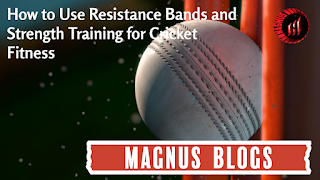The Sound of Stress: Can the Noise of Your Protective Gear Predict Game-Day Nerves?
Cricket players are creatures of habit. From how they tie their laces to how they tap the bat before facing a ball, every detail matters. But what if one of the most overlooked signs of mental readiness—or pressure—was hiding in plain sound? The subtle creak of your pad straps, the rustle of your thigh guard, or the soft knock of your helmet chinstrap might reveal more than you'd expect. Could the noises your gear makes be echoing the stress inside you?
The Psychological Link Between Sound and Nerves
Human brains are finely tuned to associate certain sounds with emotions. A player hearing their pads creak louder than usual might unconsciously link that unfamiliar noise to discomfort, distraction, or even vulnerability. This isn’t about superstition—it’s about sensory feedback. When athletes are on edge, they become hyperaware of their surroundings, including the sounds their gear makes.
In high-pressure moments, especially before a crucial over or during a tight chase, even the smallest sound from gear can act as a trigger for anxiety or hesitation.
When Sound Becomes a Feedback Loop
Let’s break it down:
-
Increased stress = heightened sensory awareness
-
Heightened awareness = louder or more distracting gear noise
-
Distracting gear noise = mental interference during performance
-
Mental interference = reduced confidence or decision-making speed
It becomes a loop. The player notices an unusual sound, begins to focus on it, and slowly loses concentration on the game itself.
How Gear Fit Can Amplify This Effect
Loose straps, improperly adjusted helmets, or worn-out padding can shift more during movement and create unfamiliar noises. A pad that rustles every time you take a stance might be negligible during a net session—but under stadium lights and crowd pressure, it could distract you just enough to alter your timing.
Can This Be Measured?
While no scientific study directly links gear noise to stress levels in cricketers, parallels can be drawn from sports psychology and military performance research. In those fields, it’s well-documented that auditory cues (like the click of a weapon or the squeak of a shoe) can influence focus and decision-making under pressure.
With wearable tech becoming more advanced, there's potential for sound sensors to help identify nervous states or pre-performance jitters in cricket, too.
What Can Players Do?
-
Conduct a pre-match gear sound check: Wear all equipment and move around to listen for unusual noises.
-
Use training under pressure: Simulate match pressure in nets with full gear to get used to your equipment’s soundscape.
-
Invest in high-quality, snug-fitting gear: The better your gear fits, the less movement—and less noise—it will make.
-
Stay consistent: If you find a gear configuration that’s silent and comfortable, replicate it every time.
Cricket bat types, Cricket equipment in usa, Cricket equipment store, Cricket gloves, Cricket helmet, Cricket kit bags, Cricket retailers, Durable cricket gloves, English willow bats, Icc approved helmets., Kashmir willow cricket bat, Latest kashmir willow bat
.png)
.png)
.png)
.png)
Comments
Post a Comment